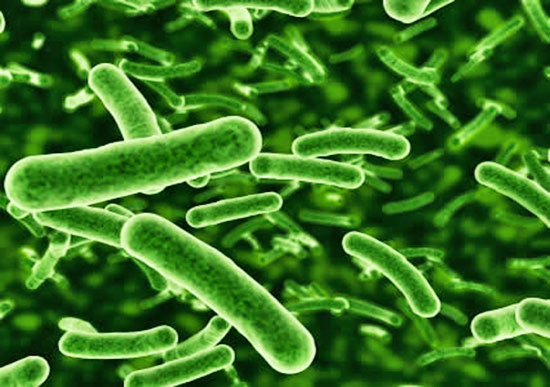|
March 29, 2013
from
PreventDisease Website
They were among the first life forms to appear on Earth and have been critical members of human metabolism since our existence. They are not our enemies.
Managing bacteria and
other microorganisms in the body, rather than just fighting them,
may be lead to better health and a stronger immune system, according
to a Penn State biologist.
However, he said that recent evidence of the complex interaction of the body with microbes suggests a new interpretation of the relationship.
Harvill said that this reinterpretation leads to a more flexible approach to understanding how the immune system interacts with microbes.
This approach should
balance between defending against pathogens and enlisting the help
of beneficial microbes.
Altering bacterial growth
in the digestive system alters interrelations between intestinal
bacteria, bile acids, and ingested fats which can have significant
physiological consequences.
While intestinal microbiota clearly impact the host's energy balance, their role in intestinal absorption and extra-intestinal metabolism of dietary fat is less clear.
Research in Science Translational Medicine (New way to lose weight? Changing microbes in guts of mice resulted in rapid weight loss) conducted in collaboration with scientists at Massachusetts General Hospital, has found that the gut microbes of mice undergo drastic changes following gastric bypass surgery.
The benefits of microbes are no longer debated by scientists.
In some cases, attacking pathogens can harm the beneficial effects microbes have on immune system.
For example, patients on antibiotics have an increased risk of contracting yeast infections and MRSA.
The system that includes bacteria and other microbes in the human body, or the microbiome, is much larger and more integrated into human health than most people suspect, according to Harvill.
Adding to the complexity is the adaptive capacity of the human immune system.
The immune system can develop antibodies against certain pathogens, which it can reuse when threatened by future attacks from the same pathogen.
Harvill, who described his alternative viewpoint in the latest issue of mBio, said that some researchers have not yet accepted this broader approach to the immune system.
Other researchers who study plant and nonhuman biology are already starting to embrace the concept.
For example, plant biologists are beginning to recognize that viruses can help plants resist drought and heat.
Harvill said adopting this new perspective could be the first step toward new medical treatments.
Diverse Bacteria On Fresh Fruits and Vegetables
Scientists report
that these surface bacteria vary depending on the type of produce
and cultivation practices.
Fruit like apples,
peaches and grapes have more variable surface bacterial communities
from three or four different groups. The authors also found
differences in surface bacteria between produce grown using
different farming practices.
These surface bacteria on produce can impact the rate at which food spoils, and may be the source of typical microbes on kitchen surfaces.
Previous studies have shown that although such microbes don't necessarily cause disease, they may still interact with, and perhaps inhibit the growth of disease-causing microbes.
The results of this
new research suggest that people may be exposed to substantially
different bacteria depending on the types of produce they consume.
|


